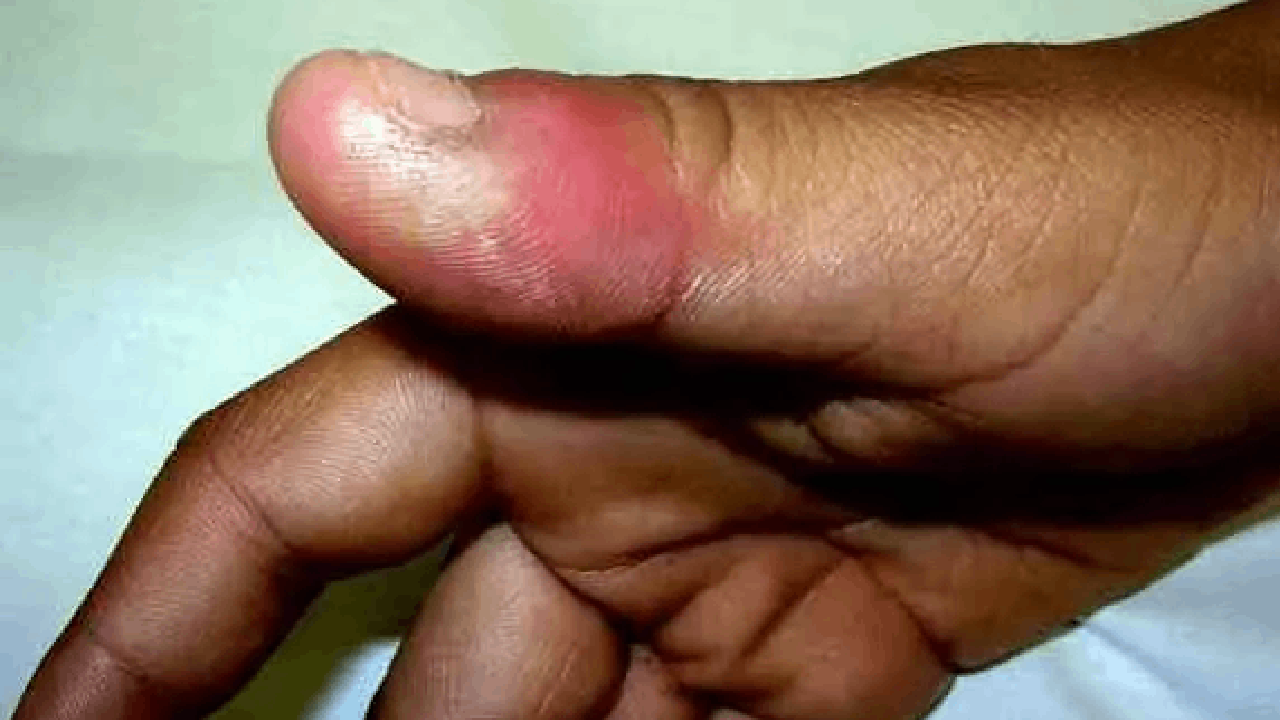Nigeria News
Traditional ways to treat whitlow

Whitlow, also known as a felon, is a painful infection that occurs around the fingernail or toenail. It can be caused by bacteria, such as Staphylococcus aureus, entering the skin through a cut or abrasion. While modern medical treatment is the most effective and recommended approach for whitlow, some traditional remedies have been used to alleviate symptoms and aid in the healing process. It is important to note that these traditional methods may not be supported by scientific evidence, and seeking professional medical advice is essential for proper diagnosis and treatment. Here are some traditional ways to treat whitlow:
-
Warm Soaks: Soaking the affected finger or toe in warm water mixed with Epsom salts or salt may help reduce pain and promote drainage. The warm water can help improve blood circulation, which may aid in the body’s natural healing process.
-
Herbal Compresses: Some herbs, such as chamomile, calendula, or witch hazel, have anti-inflammatory and soothing properties. Making a warm compress with herbal infusions and applying it to the affected area could help alleviate discomfort.
-
Garlic: Garlic has antimicrobial properties that are believed to help fight infection. Crush a garlic clove and mix it with a carrier oil, like olive oil, to create a paste. Apply this paste to the affected area and cover it with a bandage.
-
Turmeric: Turmeric is known for its anti-inflammatory and antimicrobial properties. Create a paste using turmeric powder and water or oil, and apply it to the whitlow. Cover with a bandage.
-
Aloe Vera: Aloe vera has soothing and healing properties. Apply fresh aloe vera gel to the affected area to reduce pain and promote healing.
-
Onion Poultice: Some people use onion poultices to draw out infection and reduce inflammation. Crush or grate an onion, place it in a cloth, and apply it to the affected area.
-
Hot Salt Dough Poultice: Mix salt and flour with hot water to create a poultice. Apply it to the whitlow and cover it with a bandage.
-
Tea Tree Oil: Tea tree oil has antimicrobial properties and may help fight bacterial infections. Dilute tea tree oil with a carrier oil and apply it to the affected area.
It is important to exercise caution when using traditional remedies, as some of these substances may cause skin irritation or allergic reactions. If the whitlow does not improve or worsens after attempting these remedies, seek medical attention immediately. Doctors may prescribe antibiotics or perform a minor procedure to drain the pus and alleviate the infection. Remember, professional medical care is the best way to ensure proper treatment and avoid complications.













